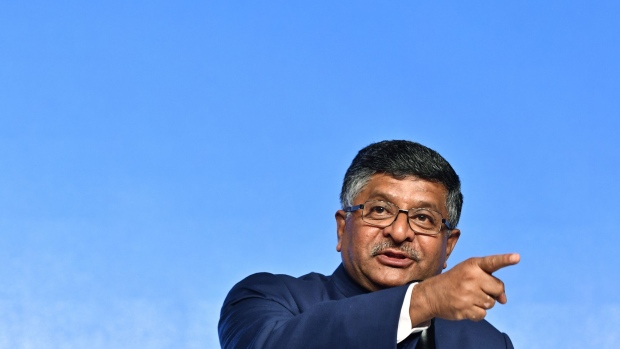Oct 23, 2019
India’s Telecom Regulator Says ‘Market Forces’ Easing Price War
, Bloomberg News

(Bloomberg) -- India’s telecommunications regulator said that while courts have blocked its attempts to reign in “predatory pricing” by carriers, market forces are easing a tariff war that has left the country’s three big carriers saddled with debt.
In one signing of easing competition, Reliance Jio Infocomm Ltd. earlier this month said it was imposing a charge on voice calls that were formerly free. The move reversed an offer that, along with cheap data packages, had accelerated a years-long competitive battle that pushed the market price for 1GB of data per month to less than a dollar.
“Market forces are working on predatory pricing,” Ram Sewak Sharma, Telecom Regulatory Authority of India chairman, said in an interview.
Jio, which pushed its way into first place this summer after jumping into the market in 2016 with a promise of free voice calling for life, is raising prices just as rivals Bharti Airtel Ltd. and Vodafone Idea Ltd. are posting losses and selling some assets to raise cash. Jio’s reversal on free calls could mark a turning point in their quest for profitability.
Bharti Airtel, Vodafone Idea Jump After Jio Call Price Revision
For its part, the government said late Wednesday it will spend about 410 billion rupees ($5.8 billion) on two unprofitable state-run telecommunication companies to help them take on competition. Mahanagar Telephone Nigam Ltd., which provides services in Mumbai and New Delhi, and Bharat Sanchar Nigam Ltd., that serves the rest of the nation, would merge under the plan, Telecom Minister Ravi Shankar Prasad said at a briefing in New Delhi. MTNL has reported losses in nine of the past 10 years, according to data compiled by Bloomberg.
While Jio’s competitors have cried foul over its strategy of entering the market with free services, courts haven’t gone along with TRAI’s attempts to regulate pricing, Sharma said. Attention has focused again on the government as carriers prepare to upgrade networks to 5G. The government has said it may ask as much as $84 billion to license airwaves needed for the high-speed services.
The $84 Billion Dilemma Vexing India’s Three Telecom Tycoons
Carriers have said they need lower spectrum prices to make 5G affordable.
Sharma said the regulator sees prices set by the government for spectrum as “reasonable,” and that it’s up to carriers to take the next step.
“Government has done everything it needs to do for 5G,” said Sharma. He also said carriers should not have to pay up-front for spectrum licenses, but instead should pay two years first, then every year after that.
He said TRAI has already made its spectrum recommendations to the government and that he couldn’t comment further.
To contact the reporter on this story: Ragini Saxena in Mumbai at rsaxena30@bloomberg.net
To contact the editors responsible for this story: Sam Nagarajan at samnagarajan@bloomberg.net, ;Unni Krishnan at ukrishnan2@bloomberg.net, Dave McCombs
©2019 Bloomberg L.P.





